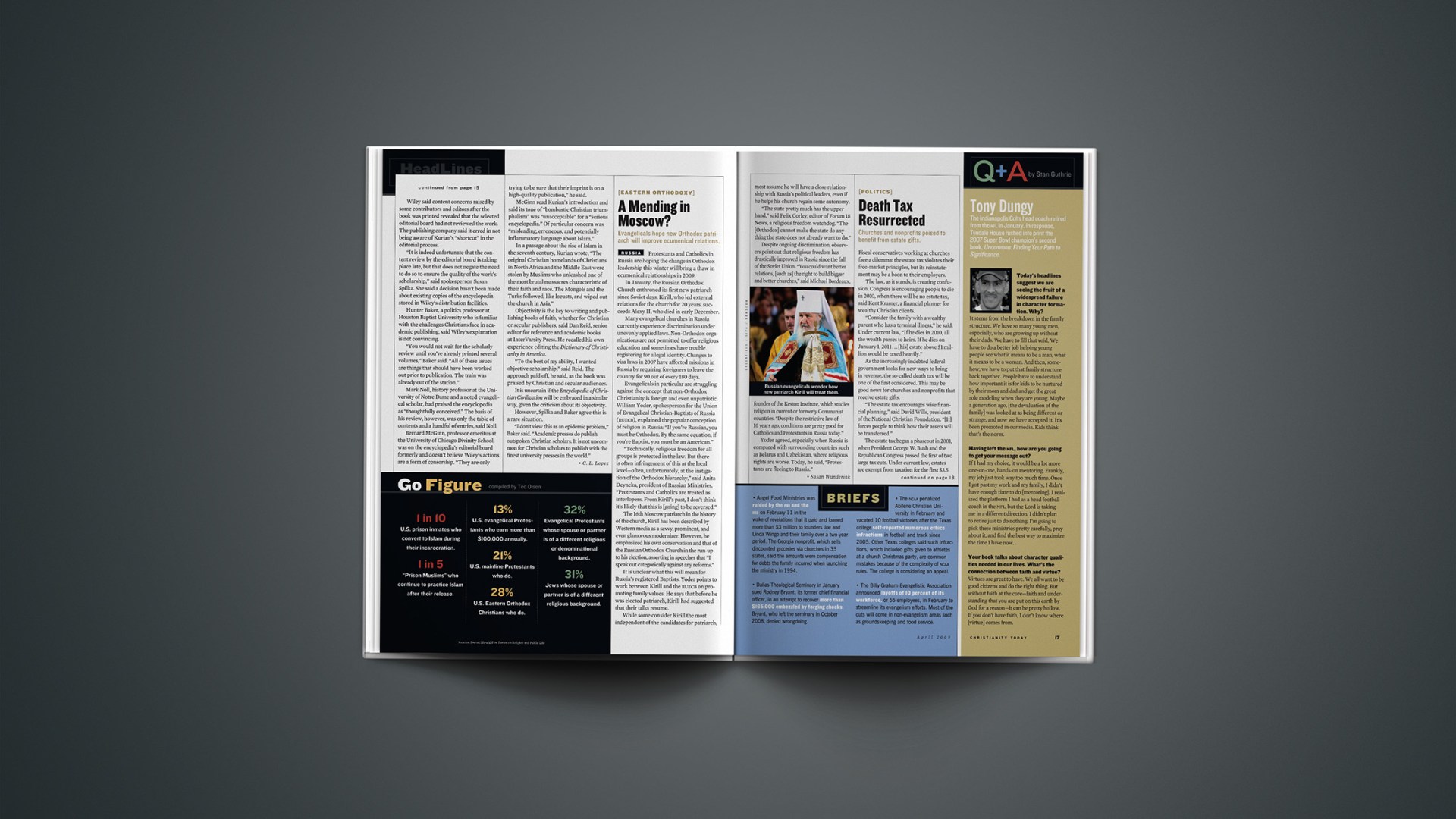Fiscal conservatives working at churches face a dilemma: the estate tax violates their free-market principles, but its reinstatement may be a boon to their employers.
The law, as it stands, is creating confusion. Congress is encouraging people to die in 2010, when there will be no estate tax, said Kent Kramer, a financial planner for wealthy Christian clients.
“Consider the family with a wealthy parent who has a terminal illness,” he said. Under current law, “If he dies in 2010, all the wealth passes to heirs. If he dies on January 1, 2011 … [his] estate above $1 million would be taxed heavily.”
As the increasingly indebted federal government looks for new ways to bring in revenue, the so-called death tax will be one of the first considered. This may be good news for churches and nonprofits that receive estate gifts.
“The estate tax encourages wise financial planning,” said David Wills, president of the National Christian Foundation. “[It] forces people to think how their assets will be transferred.”
The estate tax began a phaseout in 2001, when President George W. Bush and the Republican Congress passed the first of two large tax cuts. Under current law, estates are exempt from taxation for the first $3.5 million with the balance taxed at 45 percent. President Obama proposed maintaining these rates in his budget. The tax will disappear in 2010 but is scheduled to return in 2011 to its previous level, exempting the first $1 million of an estate and taxing the balance at 55 percent.
Kramer said wealthy individuals will have an incentive to give to charitable causes beyond the level of the exemption. “Many people would rather direct who will benefit from their estate as opposed to giving so much to the government,” he said.
Christian economists and financial planners debate whether the estate tax is good public policy. “Over the long haul,” said Wills, “charitable giving does not benefit from the estate tax because it takes so much wealth.” Wills said people who create wealth are better at investing it than the government, which would lead to greater overall economic growth.
But Calvin College economist John Tiemstra says the estate tax is advantageous because it does little to change the economic behavior of those affected. He also believes progressive taxes like the estate tax are more consistent with Scripture because they levy higher rates for those who are wealthier. Once people have met their basic needs, said Tiemstra, “equality is at least as important as prosperity.”
Whatever the merits for individual incentive or equality, churches and nonprofits are paying attention as Congress considers the matter. Almost any new law would be helpful, said Wills, because “you can’t plan for the tax when it’s changing.”
Copyright © 2009 Christianity Today. Click for reprint information.
Related Elsewhere:
Christianity Today has more stories about money & business and death & dying. See CT’s news section and liveblog for more news updates.










